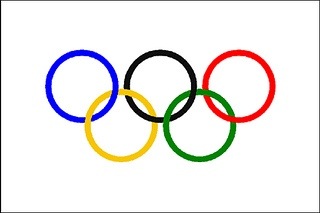IOC sanctions Ukrainian cross-country skier Marina Lisogor, Italian bobsleigher Frullani and Latvian men’s ice hockey player Vitalijs Pavlovs for failing anti-doping test at Sochi 2014
The IOC had earlier sanctioned German Biathlete Evi Sachenbacher-Stehle, 33, who tested positive on 17 February for methylhexaneamine (dimethylpentylamine).
Now it’s the turn of cross-country skier Marina Lisogor of Ukraine, she has been excluded from the XXII Olympic Winter Games in Sochi. Lisogor, 30, tested positive on 18 February for the presence of trimetazidine.
The same panel that sat on the Sachenbacher-Stehle case also handled this Lisogor doping saga. The Athlete, Ms Marina Lisogor, Ukraine, Cross-Country Skiing, is disqualified from the Ladies’ Team Sprint Classic Semifinal B event.
This also means that her team is also disqualified from further participation at the Winter Olympics in Sochi.
Pavlovs
Latvian men’s ice hockey player Vitalijs Pavlovs has also been sanctioned for failing an anti-doping test at Sochi 2014
The International Olympic Committee (IOC) today announced that men’s ice hockey player Vitalijs Pavlovs of Latvia has been excluded from the XXII Olympic Winter Games in Sochi.
Pavlovs, 24, tested positive on 19 February for methylhexaneamine (dimethylpentylamine).
Frullani
IOC sanctions Italian bobsleigher Frullani for failing anti-doping test at Sochi 2014
The International Olympic Committee (IOC) today announced that bobsleigher William Frullani of Italy has been excluded from the XXII Olympic Winter Games in Sochi.
Frullani, 34, tested positive on 18 February for methylhexaneamine (dimethylpentylamine).
All athletes sanctioned for drug use will be immediately expelled and have also gotten their teams disqualified from upcoming team events. And their records expunged from the record books. According to the IOC all sanctions take immediate effect
Under the IOC Anti-Doping Rules applicable to the 2014 Sochi Olympic Winter Games, testing takes place under the IOC’s auspices from 30 January (the date of the opening of the Olympic Villages) to 23 February 2014 (the date of the Closing Ceremony). Within that period, the IOC systematically performs tests before and after events. After each event, the IOC systematically carries out tests on the top five finishers plus two at random. The IOC also performs out-of-competition unannounced tests. Over the course of the Sochi Games, the IOC is expected to carry out some 2,453 tests – 1,944 urine and 509 blood.


